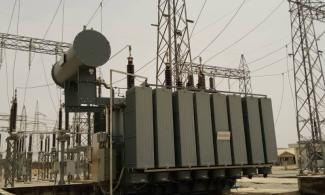
The hope of individuals and organisations in Abia State that electricity would be restored at the weekend was dashed at the weekend.
There were expectations that the Market Operating Unit of the Transmission Company of Nigeria (TCN) would reconnect Aba Power Electric Company to the national grid after more than one week of total blackout in the Aba Ring-fenced Area but this did not happen.
The hope heightened after Nigeria’s newest electricity distribution company which commenced operations in 2022, Aba Power on Friday paid N120 million to the market operator, as part of the N896 million that the distribution firm owes government agencies in the power sector.
According to sources close to both the TCN and Aba Power, who spoke on condition of anonymity because they are not allowed to speak to journalists, top officials of the organisations held a series of meetings in Abuja last week in which they discussed the reconnection of the distribution company and reached a payment schedule agreement.
Based on the agreement, Aba Power would pay an initial N120 million and the distribution supplying the commercial of Aba would be reconnected to the national grid.
Further payments are to be made later, based on the agreement reached between the parties.
The sources confirmed that the N120 million was transferred to the market operator’s bank account on Friday morning.
“The news of the payment gladdened the hearts of all Abia people, especially manufacturers and such other stakeholders as real estate investors who expected to have light during the weekend after one week of a blackout,” said Chief Alphonsus Udeigbo, President General of the Aba Landlords Protection and Development Association.
At a news conference on Friday, the 22,000 members of Aba Landlords Protection and Development Association called on the TCN to reconnect Aba Power within 24 hours or they would shut down the Federal Government-owned Alaoji Power Plant on the outskirts of Aba which supplies electricity to the Southeast and South-south regions.
“It is surprising that the restoration has not occurred, meaning the TCN breached the terms of the agreement, just as it breached the 2010 Nigerian Electricity Market Rules by yanking off Aba Power from the grid without abiding by the 30-day notice it gave the company and by shutting Aba Power down without putting it on notice.”
Nine distribution companies and four generation companies plus the Ajaokuta Steel Complex Company in Kogi State have been threatened with punishment for owing federal agencies in the power sector, according to Ben Caven, one of the engineers in the defunct National Electric Power Authority (NEPA), who enjoys the reputation of being the only person to head the transmission, generation and engineering divisions of the utility.
He was also said to be deeply involved in the design and building of the generation and transmission networks.
“But none of these organisations has been treated like Aba Power,” Caven was quoted as saying.
“The TCN has removed only three feeders out of at least the 60 at the Kaduna Electricity Distribution Company, and it was done only this weekend.
“But in the Aba Power case, which is owing far lower than any GenCo or DisCo, it is a complete shutdown, and it began over one week ago.
“The irony is that all the indebted firms were notified of an impending punishment on April 19, 2023, but the punitive action against Aba Power commenced a few hours later, and not after the 30-day notice given by the TCN.”
Patrick Umeh, the Managing Director of Aba Power, who is also a former commissioner with the Nigeria Electricity Regulatory Commission (NERC), expressed surprise that the TCN has continued to throw Abia State into darkness after the distribution company paid “a significant amount at a particularly difficult time in Nigeria when until recently the people couldn’t access either petrol or the local currency, a situation that hampered which our customers’ ability to pay for electricity bills”.
“If our ringfence remains without light, the situation will affect our ability to meet our obligations to the TCN and other power sector participants.
“The current situation is an ill wind that blows no one any good, therefore, the TCN has to reconsider its position,” Umeh added.